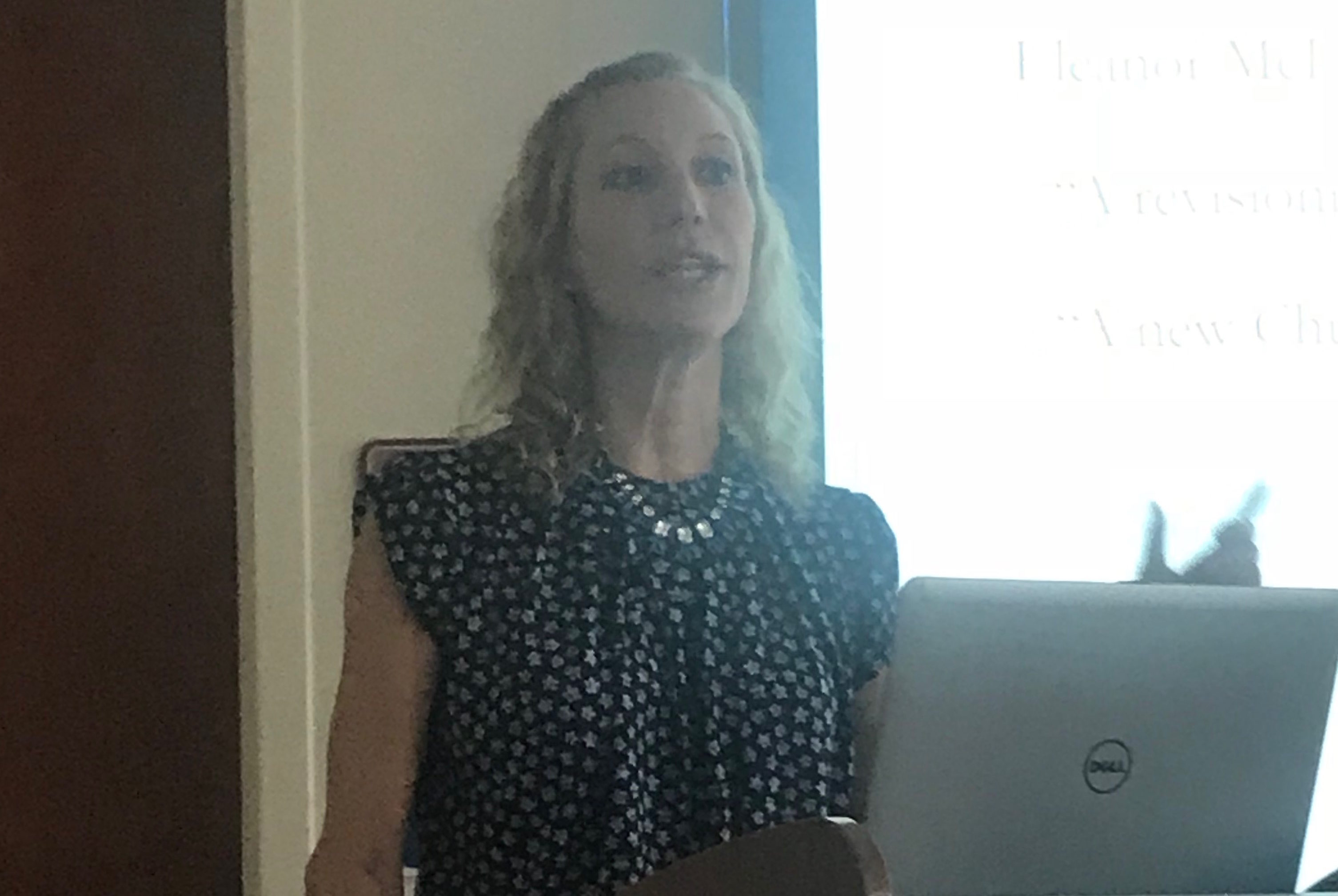A Samford University professor led a discussion on the significance of women in the Christian Church’s history.
Dr. Lisa Battaglia, who is a professor of Religion at Samford University, led a discussion about the unconventional lives of women in medieval church history on March 28. Her discussion focused on women overcoming trials and tribulations while honoring God.
Battaglia’s background is in studying women in Buddhism and women trying to live the monastic life. She said her inspiration for this discussion stemmed from her interest in female renunciant communities in Buddhism.
Battaglia’s presented, “Women Living in the Vita Apostolica,” and according to the presentation women’s voices are often left out of history.
“As someone who is very interested in women in religion, I am very interested in women’s voices, which are often obscured or left out,” Dr. Battaglia said.
To combat the oppression of women’s writing, Battaglia referenced the Therigatha, which she said was the only canonical scripture that was attributed to a woman’s authorship in a major world religion. It was believed to be published in 600 B.C.E.
Battaglia said the Therigatha is a collection of 73 poems that talk about women’s motivation and their experiences attaining enlightenment. She said this proved women’s motivation to live out their spirituality.
According to her lecture, Battaglia said in the medieval times, monks often denounced women from living the monastic life because women were viewed as incapable for living out these lifestyles.
“Women still found a way to either create their own communities, or finagle their way into living these lives anyway,” Battaglia said.
Battaglia said these women withdrew from society and took vows of chastity and obedience. She said living the monastic life actually gave women more choices; one of them being the choice not to get married nor to bear children.
Her account said these women were also revered for their mystical experiences. They were valued for being educated in the scripture and put into leadership positions that married women would never be allowed to have.
Battaglia’s first example was St. Clare of Assisi, who at the age of 18, ran away from her wealthy home to join the monastery. She took a vow of chastity and voluntary poverty.
Battaglia quoted Mueller who said, “she was a pauper without family, a nun without a dowry, a woman without a man.” Battaglia’s account said St. Clare of Assisi found contentment and true happiness in the Lord through living in poverty.
Battaglia also gave another example of Christianity empowering women in her account of Christiana of Markyate. Christiana, at the age of 14, took the vow of chastity, but her parents forced her into getting married later in her life.
Battaglia said that on Christiana’s wedding night, she renounced having sexual relations and lectured her husband on chastity. In another reference, Battaglia said that Christina ran away to join the monastery with her chastity still intact.
Battaglia said these women not only proved their capability in living out the monastic life, but also proved that God empowered these women to rise above their difficulties while giving glory to Him.
Anna Grace Moore, News Writer





